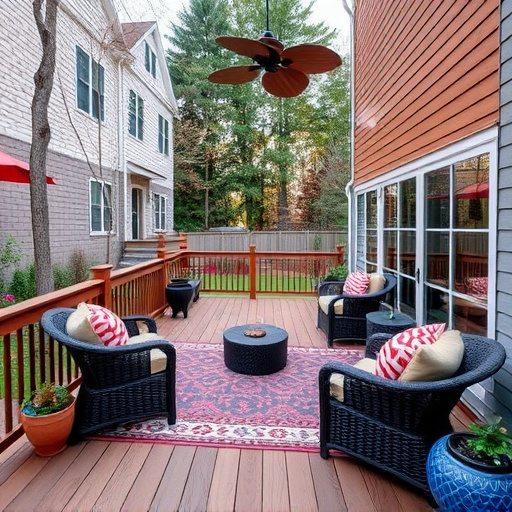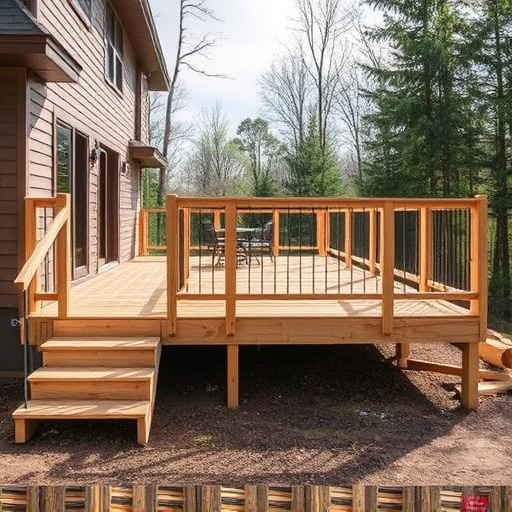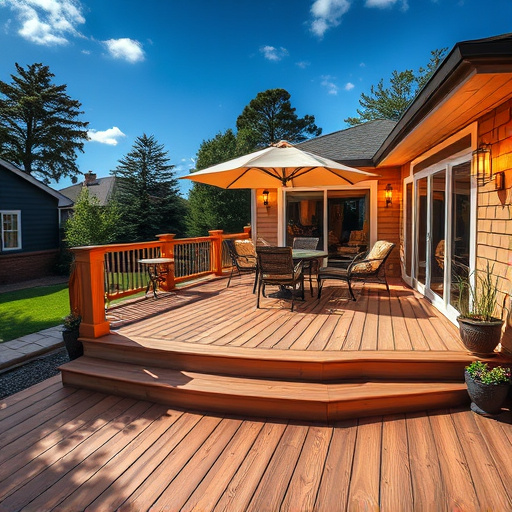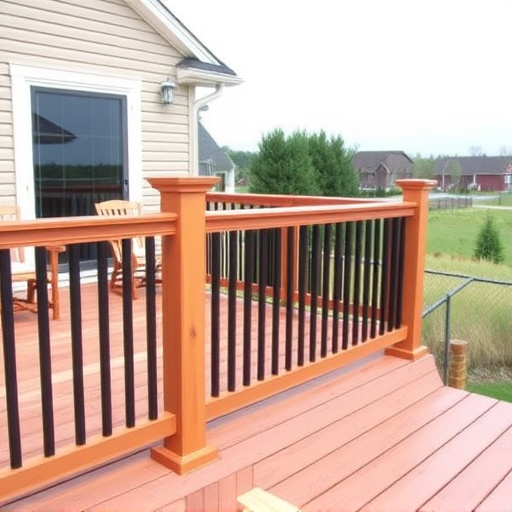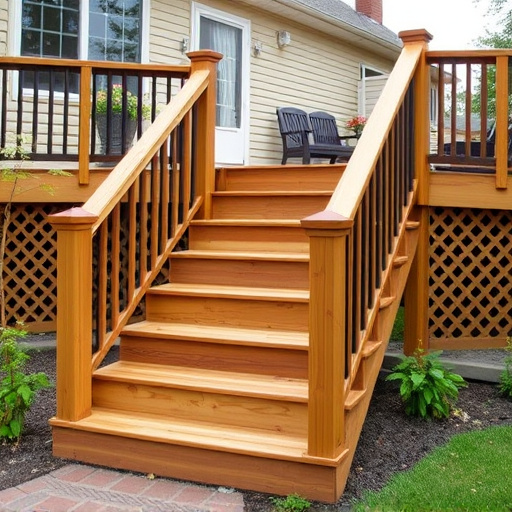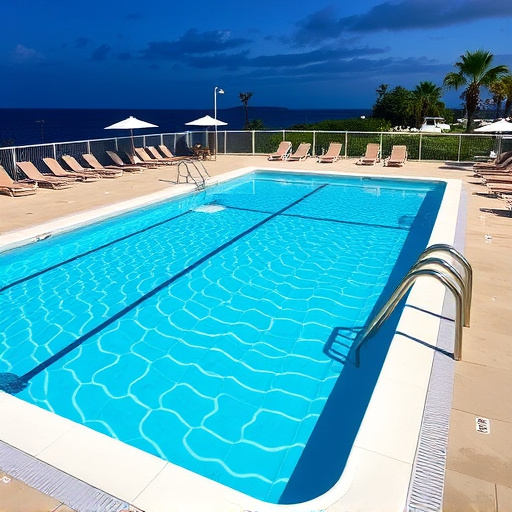Slip-resistant decking is a crucial, safe, and aesthetically pleasing addition for outdoor spaces, particularly with its ability to minimize accidents in damp conditions. Deck builders have multiple options, including composite decking and treated lumber, to offer low-maintenance solutions that protect against mold and mildew while maintaining structural integrity. By prioritizing drainage, regular cleaning, high-quality materials, and inspections, deck builders can ensure long-lasting, visually appealing decks, enhancing both safety and curb appeal with the aid of roofing and siding services from reputable contractors.
“Elevate your outdoor space with slip-resistant decking that offers both safety and aesthetic appeal. This comprehensive guide delves into the essentials of anti-slip decking, empowering homeowners and deck builders alike. Discover how specific materials and installation techniques can mitigate mold and mildew growth, ensuring a durable and low-maintenance deck. From understanding the basics to choosing the right materials and expert installation tips, this article covers everything you need to know for a long-lasting, safe, and healthy outdoor living space.”
- Understanding Slip-Resistant Decking: The Basics and Benefits
- Choosing Materials That Combat Mold and Mildew Growth
- Installation Tips for Longevity: A Guide for Deck Builders
Understanding Slip-Resistant Decking: The Basics and Benefits
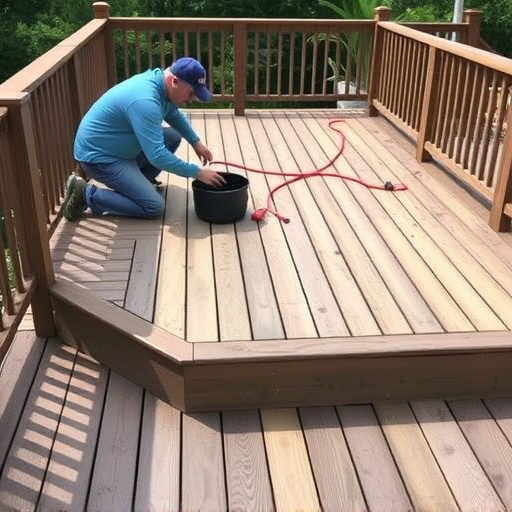
Slip-resistant decking isn’t just a luxury for safety; it’s a crucial aspect of any well-constructed outdoor space, offering both functionality and aesthetic appeal. For deck builders looking to enhance their projects, understanding the basics is essential. This type of decking is designed with specialized textures or surfaces that minimize foot traffic friction, preventing accidents and providing peace of mind, especially in areas prone to moisture.
The benefits extend beyond safety, however. A slip-resistant surface also acts as a protective barrier against mold and mildew growth, common issues plaguing exterior home improvements after storm damage repair or roof replacement. By investing in such decking, deck builders can offer clients low-maintenance, long-lasting solutions that enhance outdoor living spaces while promoting their structural integrity.
Choosing Materials That Combat Mold and Mildew Growth
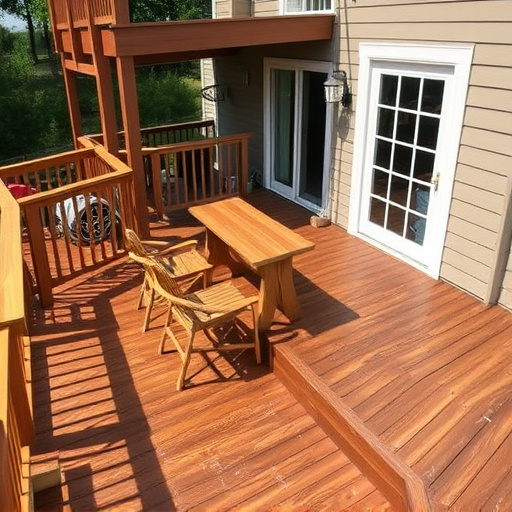
When it comes to slip-resistant decking, selecting materials that naturally resist mold and mildew growth is a smart choice for any deck builder. Composite decking, for instance, is an excellent option as it’s made from a blend of wood fibers and plastic, which creates a surface that’s resistant to these unsightly issues. This material doesn’t just look great; it also stands up well against the elements, including prolonged exposure to moisture, making it ideal for exterior home improvements.
Deck builders should also consider treated lumber, such as pressure-treated wood, which is infused with chemicals to prevent rot and insect damage, further inhibiting mold and mildew growth. While it may require more upkeep than composite decking, siding replacement or repairs, this option offers a durable and cost-effective solution for creating slip-resistant surfaces that are part of your home’s exterior charm.
Installation Tips for Longevity: A Guide for Deck Builders
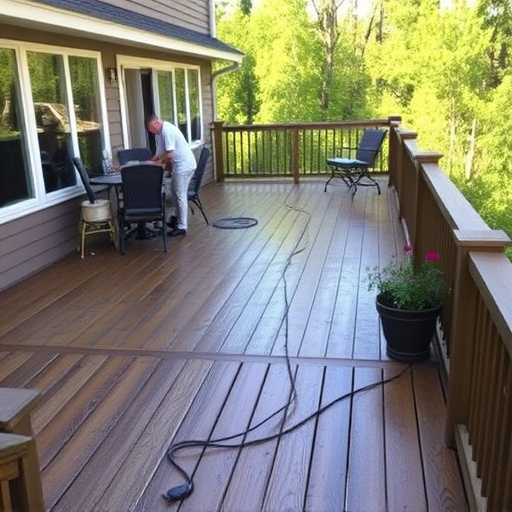
When installing slip-resistant decking that resists mold and mildew growth, deck builders should follow a few key practices for longevity. First, ensure proper drainage by grading the deck surface to divert water away from the structure. Regular cleaning with mild soap and water can prevent buildup of pollutants that foster mold growth. Additionally, deck builders should use high-quality materials resistant to rot and pests, and apply protective coatings or finishes to enhance durability.
For long-term performance, regular inspection is crucial. Look for signs of damage, rot, or moisture intrusion, addressing these issues promptly. Integrating slip-resistant features doesn’t have to compromise aesthetics—a variety of textures and colors are available that complement various architectural styles. Moreover, deck builders can leverage roofing and siding services from reputable home exterior contractors to enhance the overall safety and curb appeal of the property, ensuring a well-protected outdoor living space.
When it comes to creating safe, low-maintenance outdoor spaces, slip-resistant decking that resists mold and mildew growth is a top choice for both homeowners and deck builders. By understanding the benefits, choosing the right materials, and following expert installation tips, you can ensure a durable and aesthetically pleasing deck that stands the test of time and harsh weather conditions. Investing in such decking solutions not only enhances outdoor living but also reduces the need for frequent repairs and replacements, making it a smart decision for any property owner.








